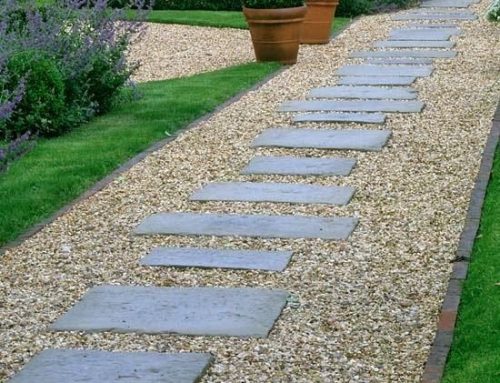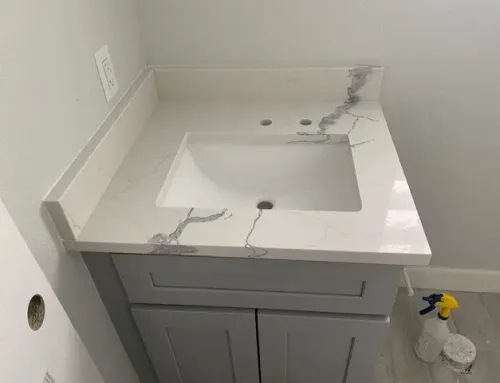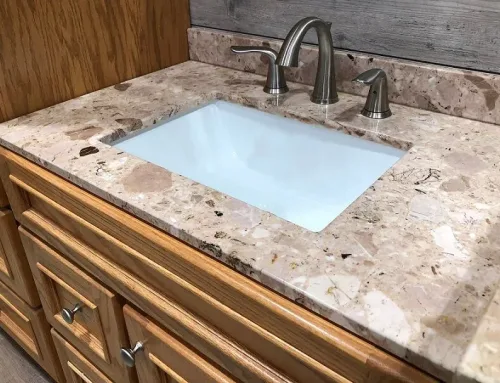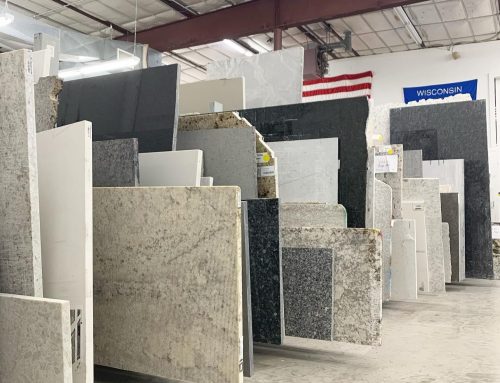What is porcelain fabrication? Porcelain fabrication is the process of manufacturing and customizing porcelain slabs for various applications, such as countertops, flooring, wall cladding, and furniture. Porcelain is a highly durable, non-porous material made from a refined mixture of clay, feldspar, and other minerals that are fired at extremely high temperatures. This fabrication process ensures that porcelain slabs are not only aesthetically appealing but also resistant to scratches, stains, heat, and moisture.
The Porcelain Fabrication Process
- Material Selection & Slab Preparation
The process begins with selecting high-quality porcelain slabs. These slabs come in various colors, textures, and finishes, allowing for customization to suit different design preferences. - Cutting & Shaping
Porcelain slabs are cut into the desired shape and size using specialized equipment such as waterjet cutters or diamond-bladed saws. This step requires precision to ensure clean edges and accurate dimensions. - Edge Profiling & Finishing
Once the slabs are cut, edge profiling is performed to refine the slab’s borders. Various edge styles, such as mitered, eased, or beveled edges, can be applied depending on the design requirements. - Surface Treatment & Polishing
The surface of the porcelain slab may be polished, honed, or textured to achieve the desired finish. Moreover this step enhances the slab’s visual appeal and ensures a smooth, flawless surface. - Seaming & Bonding
For larger installations or projects requiring multiple slabs, seam joining is an important step. Also fabricators use adhesives and epoxy resins to bond slabs seamlessly, creating a uniform appearance. - Installation & Final Touches
Also after fabrication, the porcelain slabs are carefully transported and installed at the designated location. Proper sealing and leveling are essential to ensure long-lasting performance and aesthetic appeal.
Benefits of Porcelain Fabrication
- Durability: Porcelain is highly resistant to scratches, heat, and moisture, making it ideal for high-traffic areas.
- Low Maintenance: Unlike natural stone, porcelain requires minimal maintenance and does not need sealing.
- Versatile Design Options: Porcelain slabs can mimic the look of natural stone, concrete, or wood, offering endless design possibilities.
- Eco-Friendly: Many porcelain slabs are made using sustainable processes and recyclable materials.
Applications of Fabricated Porcelain
- Kitchen Countertops: A popular choice for modern kitchens due to its sleek look and durability.
- Bathroom Vanities: Resistant to water and stains, making it perfect for wet areas.
- Wall Cladding & Flooring: Enhances both indoor and outdoor spaces with stylish, low-maintenance surfaces.
- Furniture & Custom Designs: Used for tables, shelving, and decorative elements.
Final Thoughts
So what is porcelain fabrication? Porcelain fabrication is a meticulous process that transforms raw porcelain slabs into elegant, functional surfaces. With its superior durability, aesthetic versatility, and low-maintenance nature, porcelain continues to be a top choice for architects, designers, and homeowners alike. Whether for countertops, flooring, or custom applications, fabricated porcelain offers both beauty and performance in modern design.





